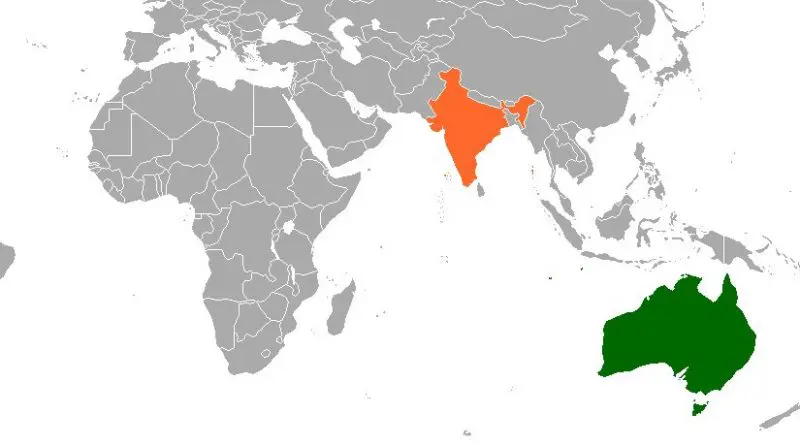Australia ‘Labors’ To Sell Uranium To India – Analysis
By IPCS
By Tanvi Kulkarni
Australia’s ruling Labor Party (ALP) decided to end the ban on uranium exports to India on 4 December 2011. The 206-185 vote that passed a proposal tabled by Prime Minister Julia Gillard at the 46th National Conference of the ALP, overturned Australia’s prolonged policy of denying India any nuclear commerce. The decision was welcomed by both Australia and India, to the extent of describing it as the gateway to long-term Indo-Australian strategic partnership. This commentary will journey the narrative surrounding the decision to identify three issues: How did the Labor Party build up a rhetoric that supports uranium sales to India? Can the decision just yet point to a convergence of strategic interests and a potential Indo-Australian rapprochement? What formalities are expected to follow from the ALP’s decision?
The N-factor has for long influenced, if not decided, the flavour of the India-Australia bilateral relationship. Australia’s nuclear policy has upheld the tenets of the NPT and the country had been at forefrontal in rendering India a nuclear pariah. Thus when the world’s third largest uranium supplier decided to boycott India’s burgeoning nuclear energy market, it was portrayed as a principled opposition to protect the non-proliferation regime.
The beginning of the Indo-US nuclear cooperation revealed dents in Australia’s argument, visible in the way its political leadership went back and forth while talking about uranium sales to India. In 2007, Prime Minister John Howard expressed his approval of uranium sales to India. But this policy was struck down by the succeeding Liberal government. Prime Minister Kevin Rudd also imposed the uranium embargo on India. Yet, as a member of the Nuclear Suppliers Group, Australia voted in favour of giving India the waiver. Even then, a string of consistent denials preceded Australian media reports of behind-the-door talks of exporting uranium to India. As a culmination to the suspense, PM Gillard made an almost dramatic announcement on 15 November 2011 in The Age that she would convince the ALP to reverse the embargo.
The fixation with the NPT is typical of the Australian bureaucracy, as the Australian commentator and strategic analyst Greg Sheridan has pointed out, and bureaucratic resistance disallowed Australia’s political leadership to engage in nuclear talks with India for over a decade.
Two facets shape the reasoning behind ALP’s decision to sell uranium to India. The official line combines several factors that propel the ruling party towards this decision – India’s ambitious nuclear power market holds opportunities for Australia’s uranium mining industry. An expected supply of 2500 tonnes of uranium annually to India starting from 2030 will generate export sales of US$309 million, according to the Australian Uranium Association. Northern Territory and South Australia are places where the uranium mining activity is most established; their heads of state/territory Jay Weatherill and Paul Henderson respectively were amongst those who strongly supported the vote to lift the ban on India. Moreover, better overall bilateral trade is expected out of the general goodwill thus created. Much obviously, economic benefits as an argument should have led Australia to do uranium business with India right at the outset or at least when India approached Australia’s competitors Canada and Kazakhstan. The uranium ban then has been as much an albatross around Australia’s neck as that around India’s.
The ‘right time in history’ that PM Gillard mentions is perhaps of the fruition of the India’s nuclear cooperation with the US. The language used to promote the decision is akin to the episode that spanned the Indo-US nuclear agreement – India represents a ‘unique’ case and embracing ‘dynamic democratic India’ is necessary if Australia wants to seize opportunities in the ‘Asian century’. President Obama denies pressurizing the Australian Government to consider nuclear trade with India; but the fact that the ALP decision has come after closely watching American moves indicates the clout that the Indo-US deal had in influencing the reversal of policy.
According to security analysts such as Rory Medcalf (Lowy Institute), the ALP’s decision is aimed at building a larger strategic partnership with India in Asia. Although it is beyond the scope of this commentary to put to test each of the arguments, the omission of the Indian narrative renders them only half analyzed. The Indian response to ALP’s decision can at best be described as modest. Its immediate dismissal of an Indo-American-Australian trilateral security pact displays the Indian sense on the issue. India would prefer that commercial links with Australia should strengthen ahead of announcing strategic ones.
The ALP’s reversal has to be formally adopted as policy by Australia’s Federal Cabinet. The fact that some of the party ministers also voted against the proposal adds to the burden of getting the Greens on board. Australia also has to decide whether India as a ‘unique case’ would be entering the bilateral nuclear safeguards agreement as a nuclear weapons states or a non-nuclear weapons state. This may warrant modifications to the already strict safeguard policies that apply to Australian Obligated Nuclear Materials (AONM). The ALP’s decision is therefore only the tip of an iceberg of dramatic events that are yet to follow.
Tanvi Kulkarni
Research Officer, IPCS
email: [email protected]

